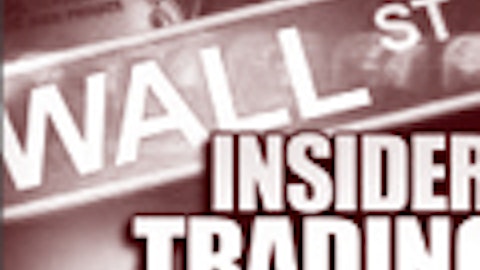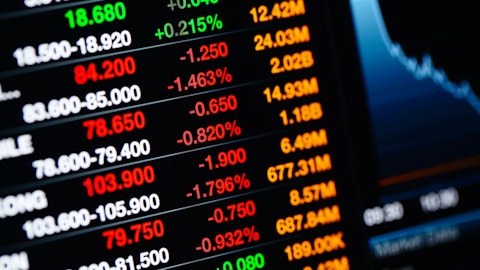The world’s second-largest economy, China, has been undergoing a rather painful transition from an infrastructure-based economy to one that focuses on consumer spending. The country’s government officials as well as global investors anticipate slower growth throughout this transition, but China’s woes are mounting on a daily basis. In fact, government officials have claimed that the growth in services and consumer spending is gaining steam, which is nonetheless not enough to carry the entire economy on its shoulders. Meanwhile, global investors look at Alibaba Group Holding Ltd (NYSE:BABA) as a pure reflection of the state of the country’s economy, so short interest in China’s largest online retailer has been extremely high thus far in 2016. For that reason, we decided to examine what billionaires and hedge funds think of this company.
Alibaba Group Holding Ltd (NYSE:BABA) has experienced an increase in activity from the world’s best hedge funds in recent months. The level and the change in hedge fund popularity aren’t the only variables you need to analyze to decipher hedge funds’ perspectives. A stock may witness a boost in popularity but it may still be less popular than similarly priced stocks. That’s why at the end of this article we will examine companies such as Anheuser-Busch InBev NV (ADR) (NYSE:BUD), Pfizer Inc. (NYSE:PFE), and Wal-Mart Stores, Inc. (NYSE:WMT) to gather more data points.
Follow Alibaba Group Holding Limited (NYSE:BABA)
Follow Alibaba Group Holding Limited (NYSE:BABA)
Receive real-time insider trading and news alerts
To the average investor there are a lot of indicators market participants put to use to grade stocks. A couple of the less utilized indicators are hedge fund and insider trading moves. Our experts have shown that, historically, those who follow the best picks of the top investment managers can outperform the S&P 500 by a significant amount (see the details here).
The American depositary receipts of Alibaba Group Holding Ltd (NYSE:BABA) are down by 12% since the beginning of 2016, presumably because of worries and concerns over the health of China’s economy. At the end of the day, more than two-thirds of the e-commerce giant’s revenue is derived from its China retail marketplaces. These marketplaces include Taobao Marketplace, China’s largest online shopping destination; Tmall, a third-party platform for brands and retailers; and Juhyasuan. However, Alibaba registered significant growth in its core business in the third quarter of fiscal year 2016 that ended December 31, as its revenue grew by 32% year-over-year and China retail marketplace revenue grew by 35% year-over-year. More importantly, the company’s China retail marketplaces registered 407 million annual active buyers in the 12-month period that ended December 31, up from 386 million in the 12-month period that ended September 30. Alibaba Group Holding Ltd’s gross merchandise volume on its China retail marketplaces totaled RMB964 billion ($149 billion) in the fiscal third quarter, which marked an increase of 23% year-over-year. This increase was mainly attributable to the sustained growth in its China commerce retail business, so Alibaba is not necessarily a reflection of the state of the world’s second-largest economy. Assuming for just a second that China will successfully complete its transition from an infrastructure-based economy to one focused on consumer spending, Alibaba will definitely represent one of the biggest winners of this transition.
With all of this in mind, we’re going to take a peek at the fresh action regarding Alibaba Group Holding Ltd (NYSE:BABA) on the next page, as well as a bearish take on the stock from a top investor that we track.





